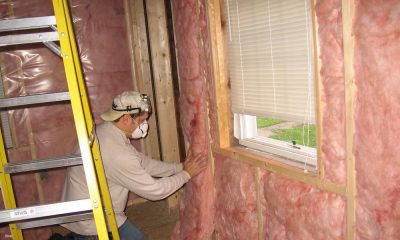General
Subdivisions That Involve Common Areas and Societies
Common areas and the requirement to become a member of a society or a shareholder in a company have been popular means of managing residential subdivisions over the last decade. They necessitate compliance with the Securities Act 1978 although an exemption from full compliance has been established for these types of developments.

Common areas and the requirement to become a member of a society or a shareholder in a company have been popular means of managing residential subdivisions over the last decade. They necessitate compliance with the Securities Act 1978 although an exemption from full compliance has been established for these types of developments. Provided a developer follows the requirements of the exemption they will not be required to provide full disclosure information (including a prospectus) to the purchaser. Failure to comply with the act will render an agreement void.
A case earlier this year illustrated just how precise compliance with the exemption must be.
A developer in Mangawhai sold property that included common areas and an obligation to become a member of a society. At the time the agreement was signed, the society had not yet been incorporated. The rules were in a draft format and were provided to purchasers. From those draft rules the purchaser could see the society requirements and the form the society would take.
However, the exemption required that the rules must be supplied to the purchaser “before subscription”. Subscription occurs when the agreement for sale and purchase is signed.
The court determined that, in order to rely on the exemption, the documents required to be supplied to the purchaser must include the rules of a society that was actually incorporated not those of a society that was proposed to be incorporated under the act.
The consequence was that the requirements of the Securities Act exemption had not been complied with.
General
Growing Economy Increases Housing Demand
Auckland is New Zealand’s economic hub and with our economy set to continue to grow over the next couple of years demand for housing in Auckland will remain high. Property values in New Zealand have increased by more than 25 percent in 3 years and NZHerald also reports Auckland’s the median house has risen by 46.5% however there are investors buying Auckland residential property for less than market value.

Auckland is New Zealand’s economic hub and with our economy set to continue to grow over the next couple of years demand for housing in Auckland will remain high.
Property values in New Zealand have increased by more than 25 percent in 3 years and NZHerald also reports Auckland’s the median house has risen by 46.5% however there are investors buying Auckland residential property for less than market value.
For some investors in the Auckland property market the highly profitable property deals are apparently still out there. PropertyTutors mentoring clients have continued to buy residential property below market value in 2015. This month alone Lauren a new investor under the guidance of mentor Sean Wood bought two properties in 24 hours for less than the market price who would have thought it possible?
Also with demand for property at an all time high, investors like James and Elliot are managing to sell their properties whilst they’re still renovating them. This lowers the investor’s costs as there are no property marketing or listing fees.
Head of Trade Me Property Nigel Jeffries says the latest Property Price Index showed that while the average asking price in Auckland has risen by 20 per cent in the last year, small houses (1-2 bedrooms) had increased 24 per cent and apartments were up a “staggering” 49 per cent in a year.
Trade Me Sales Price Index
As long as our economy continues to grow, demand for Auckland housing in all its forms will be strong.
This blog article was written for PropertyBlogs by Mobilize Mail.
General
Nelson – Hot Location For Lifestyle
Baby boomers particularly those currently living in Auckland may be setting their sights on Nelson and who would blame them. Nelson offers the perfect lifestyle with a mediterranean climate, idyllic nature walks, sandy beaches, culinary delights and of course it’s one the cultural arts capitals of New Zealand too.

Baby boomers particularly those currently living in Auckland may be setting their sights on Nelson and who would blame them. Nelson offers the perfect lifestyle with a mediterranean climate, idyllic nature walks, sandy beaches, culinary delights and of course it’s one the cultural arts capitals of New Zealand too.
The house and land packages in Nelson are really too good to be true. Imagine selling your property in Auckland, capitalising on the high property values, and securing a better lifestyle in a brand new home (mortgage free) in one of the safest and friendliest places in the world! This was once a move only the wealthy could afford. Now it’s a reality for so many Aucklanders thanks to the buoyant property market.
The latest annual property sales report showed an increase in property values of 17 percent for Auckland. The average asking price for a property in Auckland starts at seven hundred and fifty thousand dollars, while in Nelson brand new home and land for sale deals start from two hundred and fifty thousand dollars.
Nelson is out of the spotlight and flying under the radar right now, but it may not last for much longer. The property market is on the move in this region with Trade Me Sales Price Index reporting property values up by over six percent during the last property sales season.
Aucklanders in their middle to late years of life will be questioning their current position. They will want to time their move so they can cash in their property equity to create a better lifestyle somewhere else; probably in New Zealand’s answer to the Med – Nelson!
This blog article was written for PropertyBlogs by Mobilize Mail.
General
Weekend Renters Trash Family Home
What can go possibly go wrong renting out your home for short term stays via a very reputable and popular online travel website? For most homeowners it all works out really well. However for this young Canadian couple it went horribly wrong.

What can go possibly go wrong renting out your home for short term stays via a very reputable and popular online travel website? For most homeowners it all works out really well. However for this young Canadian couple it went horribly wrong.
On NZHerald it was reported the young Canadian couple found out just how bad things can get when they rented out their home for a weekend. While the $875 rent was really attractive and it’s the reason so many other homeowners use the travel website Airbnb to rent out their properties on short stays, for this couple it was too good to be true.
An early txt message from a neighbour on Monday morning suggested not all was well at their home. Their weekend renters had well and truly trashed their home and caused $80,482 worth of damage to the property. Could this have been avoided? Well not entirely but like a goods trading site e.g. TradeMe where sellers and buyers build up a reputation for their trading activities the same applies on sites like Airbnb. Therefore as a renter or landlord you can review the feedback on the interested parties and make your selection based on it. It is unclear whether the Canadian couple took this action.
‘Caveat Emptor’ (buyer beware) is the lesson here – always do your due diligence on anyone interested in renting your property.
This blog article was written for PropertyBlogs by Mobilize Mail.
-

 Management5 years ago
Management5 years agoHome Insulation Requirements
-

 Investment5 years ago
Investment5 years agoAnother date NZ property investors are dreading
-

 Accounting & Finance5 years ago
Accounting & Finance5 years agoLow Interest Rates Winners and Losers
-

 Build5 years ago
Build5 years agoHow to Choose and Purchase a Suitable Property to Subdivide
-

 Management6 years ago
Management6 years agoAttracting More Business Travellers To Your Auckland Airbnb Property
-

 Investment6 years ago
Investment6 years agoWould You Be a Landlord in 2018?
-

 Tenants6 years ago
Tenants6 years agoCoworking Countdown – 4 Things to Prepare Before You Move In
-

 Renovations6 years ago
Renovations6 years agoFive easy steps to boost the appeal of your home





